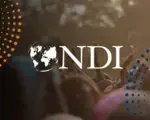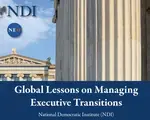Presidential
Displaying search results 1531 - 1540 of 5108

General
2021 Chile General Elections

Presidential
2021 Gambia Presidential Elections

Parliamentary
2021 Ethiopia Parliamentary Elections

Toolkit/Guide
Executive Transitions Guide

By-Election
Bougainville By-Elections 2021

Legislative
2021 Argentina Legislative Elections

Presidential
2021 Republic of the Congo Presidential Elections

Presidential
2021 Djibouti Presidential Election

Legislative
2021 Côte d'Ivoire Legislative Elections

